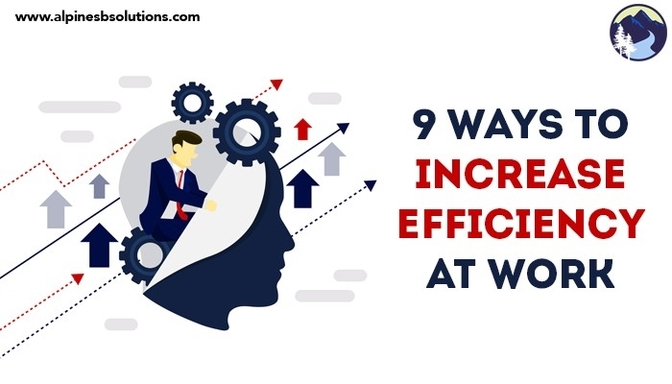
Efficiency at work refers to the ability to complete tasks in the most productive way possible, with the least amount of time and effort. It allows you to maximize your resources while continuing to produce high-quality work. Here are some tips to improve efficiency at work:
1. Be proactive instead of reactive: When you take proactive steps, you anticipate the future and see from a larger perspective. Being proactive means planning and creating a strategy to maximize efficiency. This can mean identifying tools or software that make tasks more manageable. Automating specific processes can speed up task completion and free up team members to focus on more detailed duties. Looking into the future for potential improvements can save time, money, and effort in the long term.
2. Delegate to others: A great way to improve your efficiency at work is to delegate tasks to others. While this may not always be possible, delegation can free up time to focus on more essential duties. Giving responsibilities to employees helps them develop their skills and motivates them to contribute to the team’s success.
3. Eliminate unnecessary tasks: There may be specific tasks that are redundant or unnecessary in the workplace. Eliminating these tasks can help free up time to be more efficient in other projects. This can be especially helpful when employees work on critical or urgent tasks and need extra time to focus.
4. Give and receive feedback: Giving and receiving helpful feedback is another strategy for improving employee efficiency. If you don’t realize you’re being inefficient, it isn’t easy to improve your skills.
5. Take breaks: Taking breaks can help you recharge and refocus. It can also help you avoid burnout and increase productivity. Consider taking a short walk, meditating, or doing some light stretching.
6. Organize your workspace: A cluttered workspace can be distracting and lead to inefficiency. Organizing your workspace can help you stay focused and reduce stress. Consider using folders, labels, and other organizational tools to keep your workspace tidy.
7. Prioritize tasks: Prioritizing tasks can help you focus on the most important and urgent tasks first. This can help you avoid feeling overwhelmed and ensure that you complete tasks on time.
8. Use technology to your advantage: There are many tools and software available that can help you work more efficiently. For example, project management software can help you stay organized and on track. Time-tracking software can
